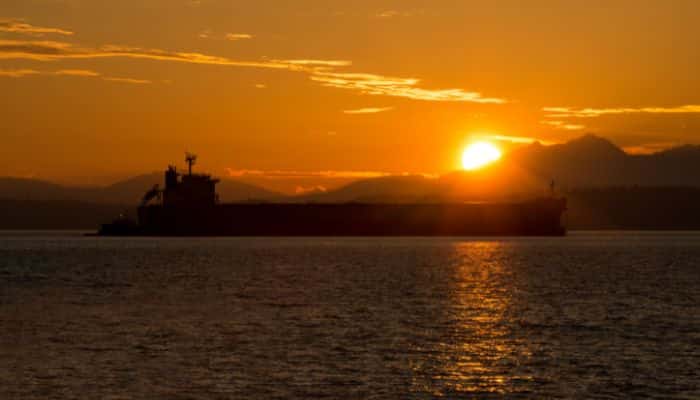
Samsung Heavy Demonstrates Autonomous Navigation Technology On 15000 TEU Container Ship
July 6, 2023
Ancient Treasures From German Shipwreck Unveiled After 400 Years
July 6, 2023
On Wednesday, a distressing incident unfolded off the coast of Muscat, Oman, as shots were fired at a tanker, according to UK Maritime Trade Operations (UKMTO) reports. The targeted vessel, the Richmond Voyager, is a Bahamas-flagged oil tanker owned by a Greek company and managed by a US entity. Thankfully, the crew and the tanker remained unharmed despite the alarming attack.
The incident is a stark reminder of the persistent security challenges in the Gulf region. Over the past few years, commercial ships have faced seizures and attacks, further exacerbating the security concerns in these waters. Given its strategic importance in global oil trade, the Strait of Hormuz, a vital passage between Iran and Oman, is particularly susceptible to such events. According to Vortexa, approximately 20% of the world’s crude oil and oil product supply passes through this crucial chokepoint.
Refinitiv ship tracking data confirms the identity and position of the Richmond Voyager during the attack. Faced with gunfire, the tanker promptly altered its course and accelerated speed to evade further harm. The crew’s swift reaction and adherence to established safety protocols were pivotal in ensuring their well-being and the tanker’s integrity.

This incident resembles previous attacks on shipping in the Gulf waters, often occurring during heightened tension between the United States and Iran. The region has witnessed various security threats, including seizures, sabotage, and armed confrontations, which have raised concerns about the safety of maritime navigation and the stability of the global energy supply chain.
International maritime organizations and governments have been grappling with the multifaceted challenges posed by such incidents. Efforts to enhance security and deter future attacks have involved coordinated patrols, information sharing, and the deployment of naval assets in the region. However, these measures continue to face significant obstacles due to the complexity of the geopolitical landscape and the difficulty in maintaining a sustained maritime security presence across vast expanses of water.
The incident serves as a stark reminder of the importance of safeguarding the security of commercial shipping and the need for continued vigilance in the Gulf region. It highlights the pressing need for comprehensive strategies to mitigate risks, protect vessels, and ensure the safety of seafarers who navigate these treacherous waters.
As investigations into the attack on the Richmond Voyager commence, authorities must identify the perpetrators responsible for this brazen act. Holding them accountable will deter future attacks and send a strong message that acts of violence against maritime assets and innocent seafarers will not be tolerated.
The global community must remain committed to upholding the principles of freedom of navigation and ensuring the safe passage of commercial vessels through vital sea lanes. Collaborative efforts among nations, regional organizations, and industry stakeholders are essential to address the root causes of instability in the Gulf region and protect the integrity of global trade.
While the Richmond Voyager and its crew have emerged unscathed from this harrowing ordeal, the incident serves as a somber reminder of the enduring security challenges faced by the maritime industry. Heightened awareness, robust security measures, and sustained international cooperation are crucial for safeguarding the stability and prosperity of global maritime trade in this critical region.
Reference: Reuters, Arab News
Shots Fired At Bahamas-Flagged Oil Tanker In The Gulf, Crew Members Unharmed appeared first on Marine Insight – The Maritime Industry Guide
Source: Maritime Shipping News


